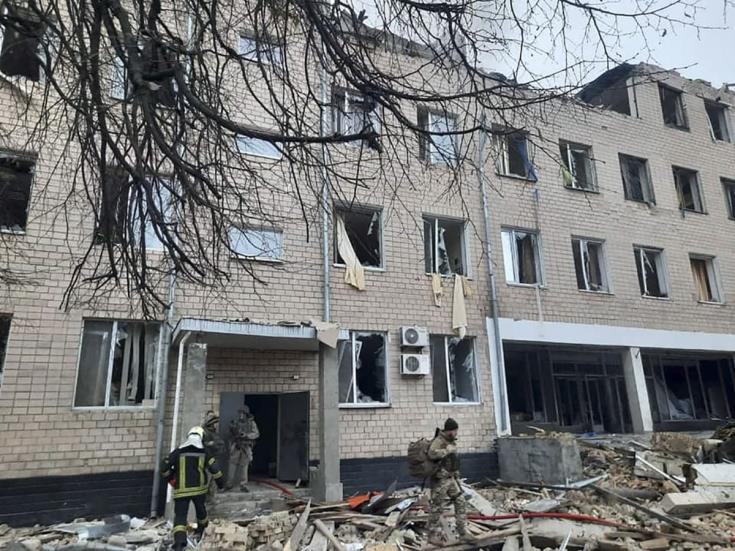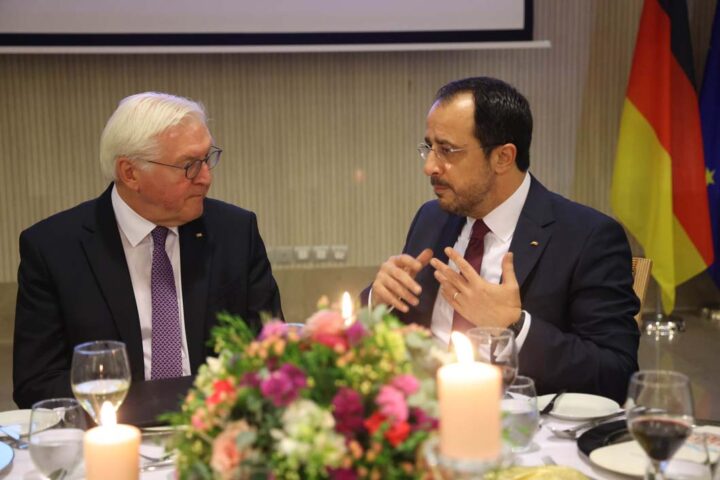The world must condemn Vladimir Putin’s acts of aggression so he can no longer jeopardise global energy and food security, said Erika Olson, US Deputy Assistant Secretary of State for Southern Europe.
Olson told the Economist Summit during a live online intervention that the US is proud to stand steadfast in its support for the people of Ukraine, characterising attacks on civilian centres as “brutal”.
“As Secretary Blinken said in response, now is the time to speak out in support of Ukraine; it is not the time for abstentions, placating words, or equivocations under claims of neutrality.
In response to Moscow’s Ukraine invasion, the US and its partners have designated more than 2,500 Russian, Belarussian, and Ukrainian individuals and entities for their involvement or support for the war.
“These are specifically targeted to disrupt the Russian military-industrial supply chain and the enabling oligarchs who profit off the Russian people and perpetuate Putin’s brutal war.
“These sanctions and export controls are intended to ensure that Russia suffers a strategic defeat.
“Our sanctions and export controls must ensure that the Kremlin’s imperial pursuits in Ukraine do not succeed, and they cannot pursue this behaviour again in the future, in Ukraine or elsewhere.”
Last month the US imposed swift and severe costs on Russia for Putin’s so-called annexation of regions in Ukraine, imposing visa restrictions for over 5,000 Russian officials.
“Due to Putin’s war, natural gas prices in the Eastern Mediterranean region have increased more than tenfold in the first half of 2022, global coal prices have doubled this year, and global oil prices have increased by over 30%.
“A situation that shows how important it is to diversify our source and type of electricity as we look for our future, and it also hastens the need for the Eastern Mediterranean and the whole world to find solutions that satisfy today’s energy demands.
“We remain committed to projects that physically connect the Eastern Mediterranean, the Middle East and North Africa and will get additional energy supplies to Europe.
“Natural gas plays an important transitionary role and getting gas on the market quickly will help strengthen the energy security of the region.”
“We are encouraged by the European Commission’s January pledge to provide €657 million for the EuroAsia electricity interconnection, which will link Cyprus, Greece and Israel, in addition to the €100 million of the Recovery and Resilience Facility”.
Olson said the Eastern Mediterranean energy sector of the future would be diverse, reliable, and secure, and the transition to clean, renewable, and sustainable energy is necessary to address the real existential threats of climate change.
She said the US is committed to developing close ties for mutual benefit on wildfire response and recovery, disaster preparedness and resilience building.
“Next month is another opportunity to address climate change with COP27 in Sharm El Sheikh; it is imperative for the world to implement and strengthen their determined national contributions to keep the goal of 1.5C warming within reach.
“With winter approaching, the US will keep working to respond to the challenging environment Putin’s war has created and is honoured to be helping with LNG shipments to Europe.
“For a safe and prosperous Eastern Mediterranean to exist, we must condemn Putin’s acts of aggression so that he can no longer jeopardise the world’s energy and food security.”









